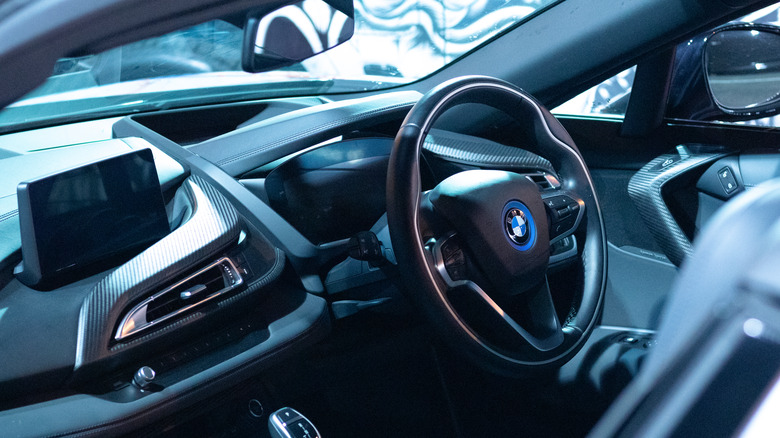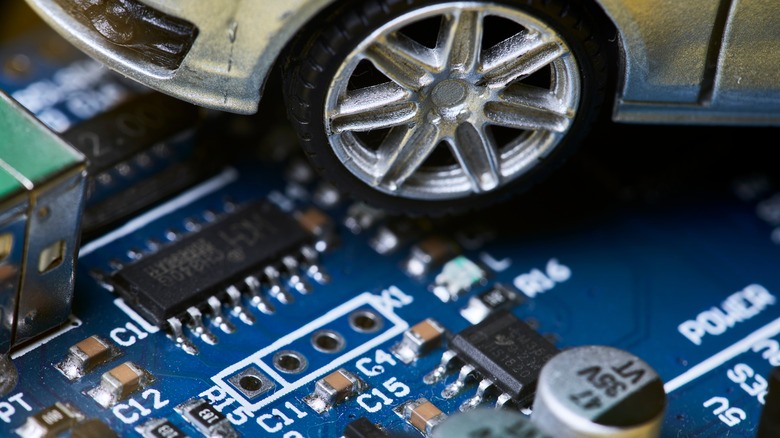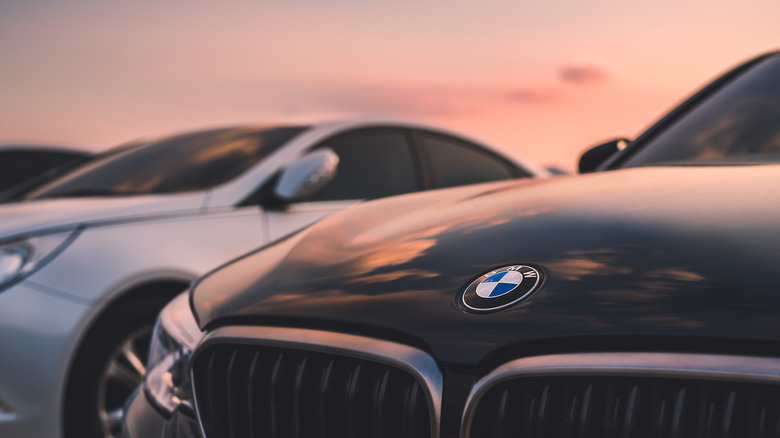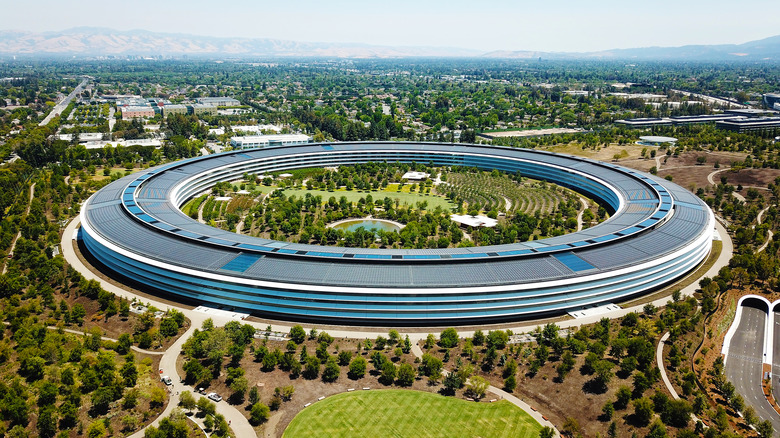

Why Some New BMWs May Need A Software Update
source link: https://www.slashgear.com/857684/why-some-new-bmws-may-need-a-software-update/
Go to the source link to view the article. You can view the picture content, updated content and better typesetting reading experience. If the link is broken, please click the button below to view the snapshot at that time.

Why Some New BMWs May Need A Software Update

In 2022, it's hard to come across cars that do not offer connected features enabled by apps like Android Auto and Apple CarPlay. The ongoing chip shortage, however, is forcing car manufacturers to do things that, well, simply do not happen under normal circumstances. Take the case of top German luxury car manufacturer BMW, which, according to Automotive News Europe, has started shipping select models of its 2022 cars without Android Auto or Apple Car Play support. Initial reports seem to indicate that several BMW customers came to know about these omissions after they received their cars (via Forbes).
The news of BMW omitting Android Auto and Apple CarPlay from some of its vehicles came barely three years after the German carmaker began a mission to widen the scope of connected tech in its models. Starting in 2019, BMW has worked to enable Apple CarPlay and Android Auto support on most of its vehicles, and this mission seems to have come to a grinding halt — at least temporarily — in 2022. According to Automotive News Europe — which first reported this development — BMW will enable these features on affected cars via a future software update.
The latest victim of the global chip shortage?

As outlined earlier, BMW's decision to omit Android Auto and Apple CarPlay support on select car models is not a cost-cutting move. Instead, the problem is a direct result of the ongoing chip shortage. BMW, in fact, confirmed this in a statement issued to Automotive News Europe. In the statement, BMW claimed that the ongoing ship shortage forced it to source a crucial microchip from another vendor.
While this move was made to expedite delivery timelines, an unintended consequence of this was that this chip did not offer support for either of these connected tech features. BMW engineers are, as you read this article, working on fixing this issue. We also have an assurance that both Android Auto and Apple CarPlay shall be enabled on these affected vehicles by the end of June 2022 via an OTA update. BMW also clarified that this is a temporary issue that will affect a limited batch of cars and that future BMWs will not be impacted by this issue.
Is your BMW affected?

If you own a relatively new BMW vehicle and, for some reason, cannot use either Android Auto or Apple CarPlay, you now know why this is happening. While BMW is yet to confirm the models affected by this issue, 9to5Google reports that most of these vehicles were shipped to markets like the United States, France, Italy, Spain, and the United Kingdom and bear the code "6P1" in their production code.
Additionally, based on forum posts, it is also becoming evident that most of the cars that have this issue were made in the first four months of 2022. It remains unclear at this moment if the newer cars made by the company will continue to have this problem. Now that BMW has promised to fix this issue soon, this saga should be done and dusted by the end of June. And given that all this could be done via a simple software update, BMW may not find it too hard to fix.
Interestingly, it is not just BMW that is facing issues getting hold of enough chips to put inside cars. BMW's archrival Mercedes seems to be in an even more worrying position after it shipped several of its cars without some chips (via Korea Economic Daily). The company did, however, promise buyers that they would get the chips installed on the cars when they become available.
Apple Car: Everything We Know So Far

For the better part of a decade, a car manufactured by the Silicon Valley company Apple has been the subject of teasing, rumors, and speculation. Throughout this time, contradictory information surrounding the project has come from both Apple and the automotive press, Apple Insider notes. Seemingly, the car has gone from an uncertain concept to a definite project, and then from cancelation to revival. Even now, the future of the vehicle remains uncertain, as head self-driving engineer Joe Bass has just left for a VR job at Meta (via Tech Radar). The previous September, Doug Field, another Apple Car manager, headed over to Ford.
In this article, we'll break down the timeline of the Apple Car project up to the present day, and try to sort out concrete facts from the ever-changing rumors. From this, we hope to gain an understanding of the car's possible feature-set, as well as the challenges the project still has to face before release.
2013-2015: The early days
Conjecture around the Apple Car first appeared in early 2013, when The New York Times mentioned that company founder Steve Jobs had previously told writer John Markoff about ambitions to produce a car. This claim was corroborated by contemporary Apple board member Mickey Drexler (via Fast Company). Of course, Jobs' original vision for the project never took off due to his battle with cancer and his 2011 death.
In 2015, Business Insider reported that Apple had adopted the name "Project Titan," with about 600 employees dedicated to research and development. Apple was both looking to compete with, and recruit talent away from, Tesla. Project Titan was almost certainly conceived as an electric vehicle, a more natural progression for an electronics company than a car powered by internal combustion. Around the same time, Apple brought Johann Jungwirth, former president of Mercedes-Benz's North American R&D, into the fold (via Forbes).
Also in 2015, San Francisco's KPIX found that modified Dodge Caravans had been registered to Apple. These vans were spotted with multiple roof-mounted cameras and what appeared to be LiDAR receivers, indicating that Apple was potentially collecting data surrounding the development of automated driver assistance. Throughout the Apple Car's timeline, its electric power supply and semi-autonomous system remain a constant vision.
That September, the Wall Street Journal cited anonymous sources claiming Project Titan was slated for a 2019 release. To achieve this quick turnaround, Apple planned to triple its automotive team. However, design challenges would see it delayed.
In January of 2016 Mac Rumors traced the registration of three web domains back to Apple, those being apple.car, apple.cars, and apple.auto. As of writing in 2022, the URLs have not appeared to publish any content. Tesla's Elon Musk also told the BBC that it was an "open secret" that Apple would be developing an EV to compete with him.
A few months later, in April of 2016, Motor Trend published renderings of what they claimed to be a possible design of Project Titan. It featured a minivan profile, with a large glass canopy and two gullwing doors accommodating four passengers. The digital model was created by staff at Pasadena's ArtCenter design school, but didn't use any input from Apple itself. With that in mind, we consider Motor Trend's vision for the car complete speculation.
The following July, Apple exec Bob Mansfield was selected to head Project Titan, Tech Crunch reported. At the same time, priorities began to shift around the automotive team. Apple was reportedly shopping around for an established car manufacturer to partner with on the project, planning to integrate its automated system with an existing chassis (via Tech Crunch). This decision would make a lot of sense, as Apple could have a much easier time leveraging another company's factory resources rather than starting from scratch. Rumor had it, according to Tech Crunch, that the vehicle was also in danger of cancelation if a working prototype couldn't be shown by the end of 2017.
2017-2019
In June of 2017, Apple CEO Tim Cook confirmed to Bloomberg that the company was developing "autonomous systems," to be implemented into cars and other machinery. He did not confirm that Apple would design an entire vehicle. The following August, anonymous Apple workers told The New York Times that Project Titan was floundering. The team was "dogged by its size and by the lack of a clearly defined vision of what Apple wanted in a vehicle." Some wanted to deliver a semi-autonomous car to market, while others wanted a fully self-driving vehicle. Both proved too lofty of a goal.
Things shifted for Project Titan in May of 2018. Apple struck a deal with Volkswagen (via The New York Times) to install its autonomous tech into VW's T6 van to create a self-driving electric shuttle. As of writing, however, this is another unfulfilled goal. A former Apple employee told The Times that Tim Cook had met with Nissan, BYD, and McLaren, seeking a partnership. That August, Tesla's former VP of Engineering, Doug Field, joined Project Titan to assist Mansfield, CNBC reported.
2018's upturn was followed by a downswing in 2019. That January, Apple announced it would lay off over 200 workers from the vehicle team, according to CNBC. Additional employees would be moved to other positions within the company. Despite the apparent downsizing, The Verge reported that Apple would acquire self-driving startup Drive.ai that June. Drive.ai was beset with prior financial issues, and its website has since gone offline.
2020-2021
In June of 2020, Sony debuted an EV concept, the Vision-S, at CES (via The Verge). Although not ready for production, the vehicle displayed many functional features including the powertrain, battery, and interior console. Sony having this prototype to show off made Project Titan seem even more of a mysterious pipe dream.
Reuters reported in December of 2020 that Apple was once again planning to develop a car in-house, with a possible release in 2024. Sources in Project Titan said that the company wanted to implement new "monocell" battery technology in the process to cut size and weight, using lithium iron phosphate as its main chemical agent. Analysts, however, expressed doubt that Apple could deliver a production car at volume, and worried that the ongoing Covid-19 pandemic would cause more delays.
In February of 2021, anonymous sources told CNBC that Apple was pursuing a manufacturing deal with Hyundai-Kia to produce a vehicle made with Apple branding at Kia's Georgia plant. They also claimed that release could be pushed beyond 2024. Just a week later, Hyundai-Kia officially commented just to say that the deal was officially off, noted Reuters.
In September, Doug Field left Project Titan for Ford, and Apple Watch engineer Kevin Lynch became the interim leader. Sources told Bloomberg that Lynch wanted a fully self-driving vehicle in 2025. For this purpose, Apple has outfitted a fleet of 69 Lexus SUVs with various cameras and sensors for testing, and poached self-driving software director CJ Moore from Tesla.
2022 and Future Challenges
We arrived in 2022 with the Apple Car's future uncertain. To make matters worse, Sony unveiled yet another concept car on January 5, this time an electric crossover dubbed the Vision-S 02 (via Car and Driver). With this new prototype, the company hopes to enter production and compete with Tesla's Model Y.
With Joe Bass' recent departure, Project Titan faces a tumultuous future. A decade since Jobs' death, the only definitive things we know about the vehicle is that it will be electric, and feature some level of automated driving. No physical prototype or design mock-up has ever been shown. If Apple will have nothing short of a fully self-driving car, then the product may be doomed altogether. Completely autonomous vehicles are at this point, theoretical, and the timeline for when one will make it to market continues to slide further and further into the future, according to Motor Trend.
If the company hopes to save this project, it will need to line up an automotive manufacturer. Apple has attempted to strike co-branding deals with multiple car makers, but it appears that those deals have all either fallen through or fizzled out. The possibility always remains that Apple is negotiating a production partnership behind closed doors, but right now, it would be a shock if we were to see Project Titan in its fully-realized form by 2025.
Recommend
About Joyk
Aggregate valuable and interesting links.
Joyk means Joy of geeK